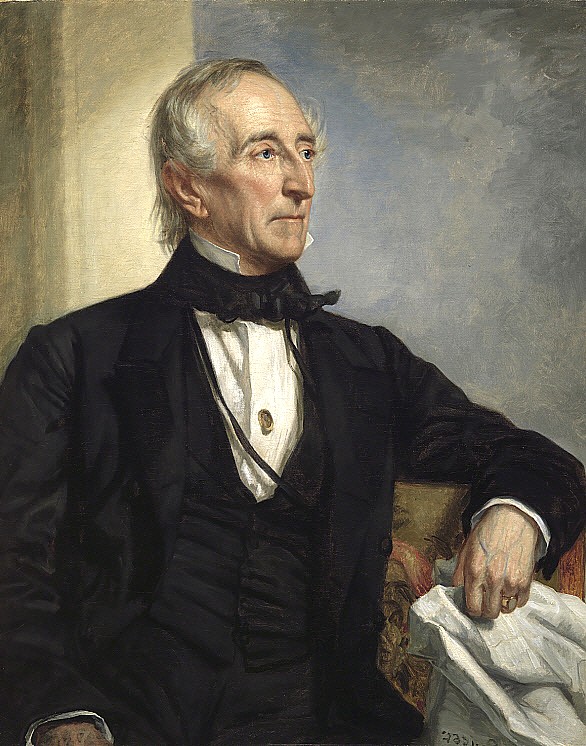President Tyler, the 10th President of the United States, is often remembered for his unique rise to power and the controversies that surrounded his administration. His presidency, which lasted from 1841 to 1845, is marked by significant events that shaped the future of the nation. In this article, we will explore the life of President Tyler, his political career, and his lasting impact on American history. By delving into his biography, we aim to provide a well-rounded understanding of this often-overlooked figure in American politics.
Tyler's journey to the presidency began in Virginia, where he was born into a prominent family. He served in various political roles before ascending to the highest office in the land, following the death of President William Henry Harrison. This unexpected transition highlighted the complexities of presidential succession and set the stage for Tyler's tumultuous administration.
Throughout this article, we will examine Tyler's policies, his relationships with Congress, and the challenges he faced during his presidency. By the end, readers will gain insight into how President Tyler's actions and decisions continue to influence the United States today.
Table of Contents
- Biography of President Tyler
- Early Life and Education
- Political Career
- Presidency: Challenges and Achievements
- Foreign Policy Initiatives
- Legacy and Historical Significance
- Personal Life and Family
- Conclusion
Biography of President Tyler
Personal Data
| Full Name | John Tyler |
|---|---|
| Date of Birth | March 29, 1790 |
| Place of Birth | Charles City County, Virginia |
| Presidency | 1841 - 1845 |
| Political Party | Whig (expelled), Democratic |
| Death | January 18, 1862 |
Early Life and Education
John Tyler was born into a wealthy planter family in Virginia. He received a classical education, studying at the College of William and Mary. After completing his education, Tyler became involved in politics, initially serving in the Virginia House of Delegates.
During his early political career, Tyler was known for his strong beliefs in states' rights and his opposition to the Federalist Party. These principles would guide him throughout his career, influencing his decisions as president.
Political Career
Before becoming president, Tyler held several significant political positions, including serving as a U.S. Congressman and Governor of Virginia. His political career was characterized by a commitment to the principles of the Democratic-Republican Party.
Tyler's rise to national prominence came when he was chosen as the vice-presidential running mate for William Henry Harrison in the 1840 election. The duo won the election, but Harrison's untimely death just 31 days into his presidency thrust Tyler into the role of president.
Presidency: Challenges and Achievements
Tyler's presidency was marked by several challenges, including opposition from members of his own party. After he assumed office, many Whigs viewed him with suspicion and attempted to undermine his authority.
Despite these challenges, Tyler achieved several significant accomplishments during his presidency:
- Signed the Preemption Act of 1841, which allowed settlers to purchase public land.
- Installed the first steamship service between the U.S. and Europe.
- Promoted the annexation of Texas, which became a significant issue in American politics.
Foreign Policy Initiatives
Tyler's foreign policy was marked by a desire to expand American influence and territory. He sought to improve relations with Britain, leading to the signing of the Webster-Ashburton Treaty, which resolved border disputes between the U.S. and Canada.
Additionally, Tyler's push for the annexation of Texas was a significant foreign policy initiative. He believed that adding Texas to the Union would enhance American security and strengthen the country's position in North America.
Legacy and Historical Significance
President Tyler's legacy is often overshadowed by more prominent figures in American history. However, his presidency laid the groundwork for future debates around states' rights and the expansion of the United States.
Tyler's actions regarding Texas would have long-term implications, ultimately contributing to the Mexican-American War and shaping the nation's future. Today, he is remembered as a controversial figure who navigated a tumultuous political landscape.
Personal Life and Family
John Tyler was married twice and had a total of 15 children, making him one of the most prolific presidents in terms of offspring. His family life was filled with both joy and tragedy, including the loss of several children.
Tyler's personal beliefs and values were deeply rooted in his Southern upbringing, influencing his views on slavery and states' rights throughout his life.
Conclusion
In summary, President Tyler's life and presidency offer a fascinating glimpse into a pivotal period in American history. From his early days in Virginia to his unique tenure in the White House, Tyler's story is one of resilience and complexity.
As we reflect on his legacy, it is essential to recognize the impact of his decisions on the United States. We invite readers to share their thoughts in the comments, explore more about American history, and continue the conversation about how Tyler's presidency shaped the nation.
Thank you for reading! We hope you found this article informative and engaging. Please visit our site again for more insightful content.
You Might Also Like
Dateline Keith Morrison As A Teenager: A Journey Through His Formative YearsOompa Loompa: The Enigmatic Creatures Of Willy Wonka's Chocolate Factory
Public Desire: The Ultimate Guide To Trendy Footwear And Fashion
How Old Was Diana When She Married: A Deep Dive Into The Life Of Princess Diana
Unlocking The Secrets Of Storage Auctions: A Comprehensive Guide To StorageAuction.com
Article Recommendations
- Markwahlberg Height
- Age Of Justin Bieber
- Scheels Black Friday Ad
- Does Odell Beckham Jr Have A Twin Brother
- Kash Patel Wife
- Iodine Testicle Painting
- Vivian Jenna Wilson Net Worth
- Who Is Traci Braxtons Son
- Lee Marvin Height
- Wentworth Miller Wife


